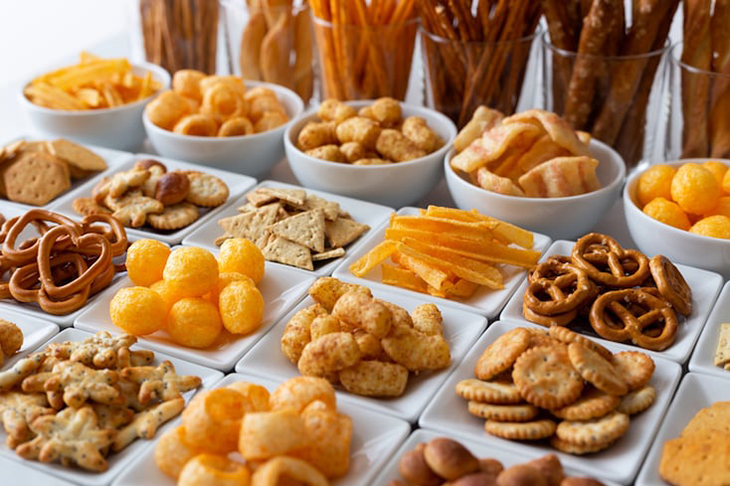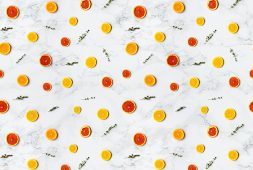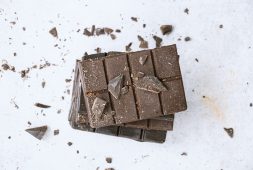
Recent research underscores the alarming reality: the seemingly harmless act of snacking can stealthily sabotage dietary efforts. According to a comprehensive study, snacks, often culprits of poor nutritional quality, are stealthily infiltrating American diets, contributing a caloric avalanche devoid of substantial nutrients.
The investigation, conducted on a staggering sample size of over 23,700 adults aged 30 and above, revealed a concerning trend: Americans are unwittingly consuming an additional meal’s worth of calories daily through snacking alone. These in-between bites, laden with carbohydrates and sugars while lacking in essential fiber and protein, are transforming casual munching into a significant dietary concern.
The data unveils a startling reality: snack calories quickly accumulate, surpassing the energy intake of many individuals’ breakfasts alone. This overconsumption, fueled by snacks’ addictive allure and deceptive appeal, underscores the urgent need for dietary awareness and healthier snack choices to safeguard against the stealthy sabotage of nutritionally deficient munching habits.
“Snacks are contributing a meal’s worth of intake to what we eat without it actually being a meal,” said senior study author Christopher Taylor, PhD, RD, a professor of medical dietetics in the School of Health and Rehabilitation Sciences at The Ohio State University in Columbus, in a statement he made.
“You know what dinner is going to be: a protein, a side dish or two. But if you eat a meal of what you eat for snacks, it becomes a completely different scenario of, generally, carbohydrates, sugars, not much protein, not much fruit, not a vegetable. So it’s not a fully well-rounded meal.”
In their study, Dr. Taylor and his team delved into data from the National Health and Nutrition Examination Surveyspanning from 2005 to 2016. This extensive dataset provided a snapshot of participants’ dietary habits over a 24-hour period.
Their findings, recently detailed in the journal PLoS Global Public Health, shed light on the significant role snacks play in our daily energy intake. Notably, snacks comprised approximately one-fifth of total energy consumption among participants.
Among the array of snack choices, convenience foods rich in carbohydrates and fats, such as potato chips and doughnuts, emerged as the dominant contenders. Following closely behind were sweets, alcoholic beverages, and sugary nonalcoholic drinks. In contrast, protein-rich options, along with dairy, fruits, and grains, constituted a smaller fraction of snack choices. Surprisingly, vegetables were notably underrepresented in the snacking landscape, according to the study’s authors.
People Suffering from Diabetes Snack More Responsibly
This study delved into the snacking habits of adults, categorizing them based on their diabetes status: those with type 2 diabetes, those with prediabetes, and those without diabetes altogether. Among the participants, roughly 70 percent fell into the non-diabetic category, just over 20 percent were classified as having prediabetes, and nearly 9 percent were diagnosed with either controlled or poorly controlled type 2 diabetes.
The results yielded fascinating insights. It was observed that individuals without diabetes and those with prediabetes tended to consume snacks that were notably higher in carbohydrates, total sugar, and added sugar compared to their counterparts with type 2 diabetes. This discrepancy suggests that adults managing type 2 diabetes may be adopting dietary practices in line with medical nutrition therapy guidelines, which emphasize the importance of moderating carbohydrate and sugar intake.
“This study reinforces dietary patterns in the United States do not align with current dietary guidelines and that people with controlled diabetes tend to be more health-conscious,” Taylor Wallace, PhD, an adjunct professor in the department of nutrition and food studies at George Mason University in Fairfax, Virginia, said. Dr. Wallace was not part of the study made.
The findings suggest that individuals vulnerable to diabetes and those with regular blood glucose levels could greatly enhance their dietary habits with increased education, thereby mitigating the onset of chronic illnesses.
Stacey Krawczyk, a registered dietitian and the director of nutrition and wellness at the American Diabetes Association, underscores the significance of diabetes-focused nutritional education, which revolves around the Diabetes Plate Method. This method underscores the importance of incorporating adequate protein, high-quality carbohydrates, and non-starchy vegetables into one’s diet for optimal health management.
“It is encouraging to see that this education may be impacting eating habits in this study, and further reinforces our need for nutrition education among those with and without diabetes,” Krawczyk said.
Fruits, Veggies, and Protein Better Options as Snacks
In this study, regardless of whether someone had diabetes or not, snacks consistently exhibited low nutritional value, primarily comprising refined grains and added sugars. However, they were notably deficient in dark green vegetables, beans, or seafood rich in omega-3 fatty acids.
“This data emphasizes the need for clinicians to assess snack intake, both in quantity and quality. While recommendations on frequency must be individualized, nutrition interventions must target nutrient-dense snacking, including snacks higher in protein, fiber, vegetables, and lower in simple sugars, and refined carbohydrates, while maintaining caloric intake,” the researchers had said in conclusion.
Wallace underscores the importance of considering the overall dietary composition of a day and assessing whether snacks contribute to meeting our nutritional requirements. There’s a plethora of nutritious snacks on the market, offering a balance of high nutrition and low calories.
“My go-tos for snacking are fruits — such as apples, grapes, pears, blueberries — nuts, and whey-protein shakes, especially on days that I work out,” Wallace, who is also a member of the American Society for Nutrition, shared. “I generally also toss a banana and a scoop of fiber in my protein shake.”
The most recent study corroborates earlier findings indicating the detrimental nature of snacking. Published in the September 2023 issue of the European Journal of Nutrition, a scientific paper analyzed the snacking behaviors of 854 participants, revealing that indulging in unhealthy snacks often counteracts the advantages of nutritious meals. This habit raises the likelihood of experiencing strokes and heart disease.
“Considering 95 percent of us snack, and that nearly a quarter of our calories come from snacks, swapping unhealthy snacks such as cookies, crisps and cakes to healthy snacks like fruit and nuts is a really simple way to improve your health,” said Sarah Berry, PhD in a recent statement. She is a coauthor of that said study as well as an associate professor in the department of nutritional sciences at King’s College London.



